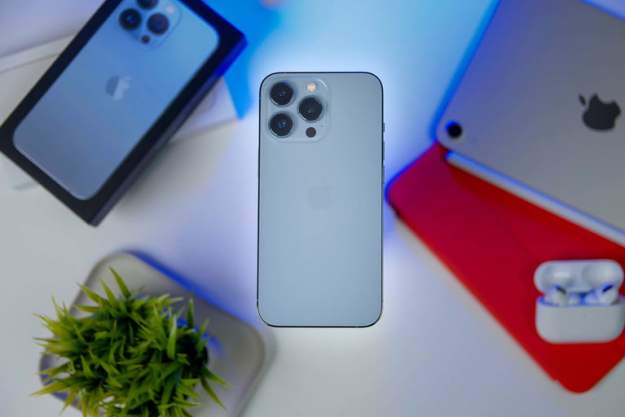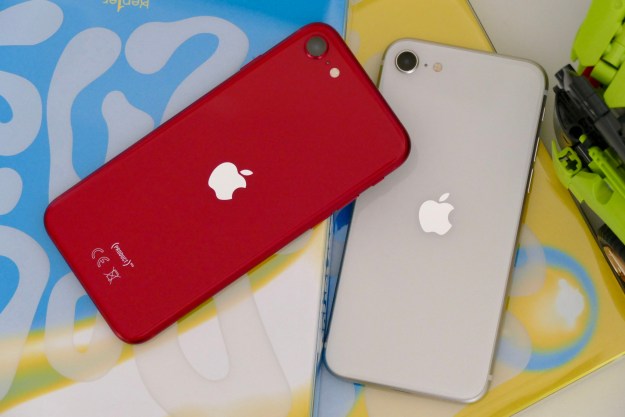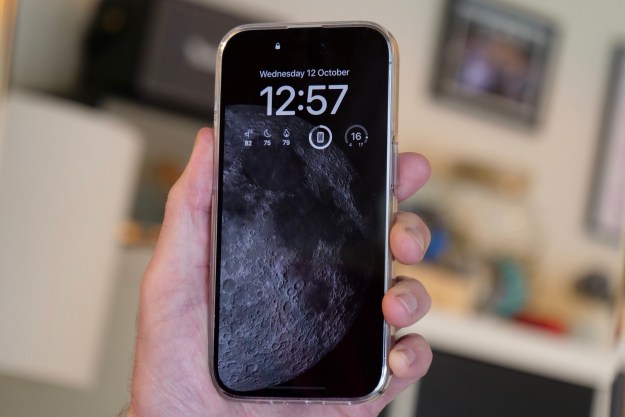The new iPhone lineup is finally here, and comes with a number of awesome features. While the iPhone X has stolen many of the latest headlines, the iPhone 8 and iPhone 8 Plus still have plenty to offer.
Of course, they’re not the only flagships out there. Not too long ago, Samsung launched its flagship phone for the year, the Samsung Galaxy S8. So how do the two phones compare? Here, we pitted them against one another find out.
Specs
|
iPhone 8  |
|
|
| Size | 5.45 x 2.65 x 0.29 inches (138.4 x 67.3 x 7.3 mm) | 5.86 x 2.68 x 0.31 inches (148.9 x 68.1 x 8 mm) |
| Weight | 5.22 ounces (148 grams) | 5.47 ounces (155 grams) |
| Screen | 4.7-inch Retina HD IPS LCD | 5.8-inch Super AMOLED |
| Resolution | 1,334 × 750 pixels | 2,960 x 1,440 pixels |
| OS | iOS 11 | Android 7.0 Nougat |
| Storage | 64/256GB | 64GB |
| MicroSD Card Slot | No | Yes |
| NFC support | Yes (Apple Pay only) | Yes |
| Processor | A11 Bionic chip with 64-bit architecture, M11 motion coprocessor | Qualcomm Snapdragon 835 |
| RAM | 2GB | 4GB |
| Connectivity | 4G LTE, GSM, CDMA, HSPA+ | GSM / CDMA / HSPA / 4G LTE |
| Camera | 12MP, 7MP front | 12MP rear, 8MP front |
| Video | 4K at 60fps, 1080p at 240fps, | 4K at 30fps, 1,080p at 60fps |
| Bluetooth | Yes, version 5.0 | Yes, version 5.0 |
| Fingerprint sensor | Yes | Yes |
| Other sensors | Barometer, gyro, accelerometer, proximity sensor, compass, ambient light sensor | Iris scanner, accelerometer, gyroscope, proximity, compass, barometer, heart rate |
| Water Resistant | Yes, IP67 | Yes, IP68 |
| Battery | 1,821mAh | 3,000mAh |
| Charger | Lightning | USB-C |
| Quick Charging | Yes | Yes |
| Wireless Charging | Yes | Yes |
| Marketplace | Apple App Store | Google Play Store |
| Color offerings | Gold, Silver, Space Grey | Midnight Black, Orchid Gray, Arctic Silver, Coral Blue, Maple Gold |
| Availability | AT&T, Verizon, Sprint, T-Mobile, Apple | AT&T, Sprint, T-Mobile, Verizon, Amazon |
| Price | $700 | $750 |
| DT Review | Hands-on | 4 stars |
The iPhone 8 and Samsung Galaxy S8 are both flagship-tier phones, and as such, they both offer flagship specs — but there are quite a few differences between these flagship specs. For starters, the iPhone offers Apple’s self-designed A11 Bionic processor, which, according to benchmarks, is the most powerful smartphone chip on the market right now. In fact, while the Qualcomm Snapdragon 835 is a powerful chip, the A11 Bionic really blows it out of the water. The iPhone 8 scored a hefty 9,983 on its Geekbench multi-core test, and 4,198 on its single-core test — beating out the Galaxy S8’s 6,492 multi-core score and 1,965 single-core score.
What does this mean? Well, it basically means the iPhone will be able to handle more at a time, and will likely offer exceptional performance for longer. Both phones should last at least two years, though the iPhone should last longer if you take care of it.
The iPhone reportedly has 2GB of RAM, while the Samsung
In regards to storage, both phones offer a base amount of 64GB, though the iPhone also comes in a 256GB configuration. Of course, if you want to expand upon the built-in storage in the
The iPhone is simply the more powerful phone here, and while the
Winner: Apple iPhone 8
Display, design, and durability
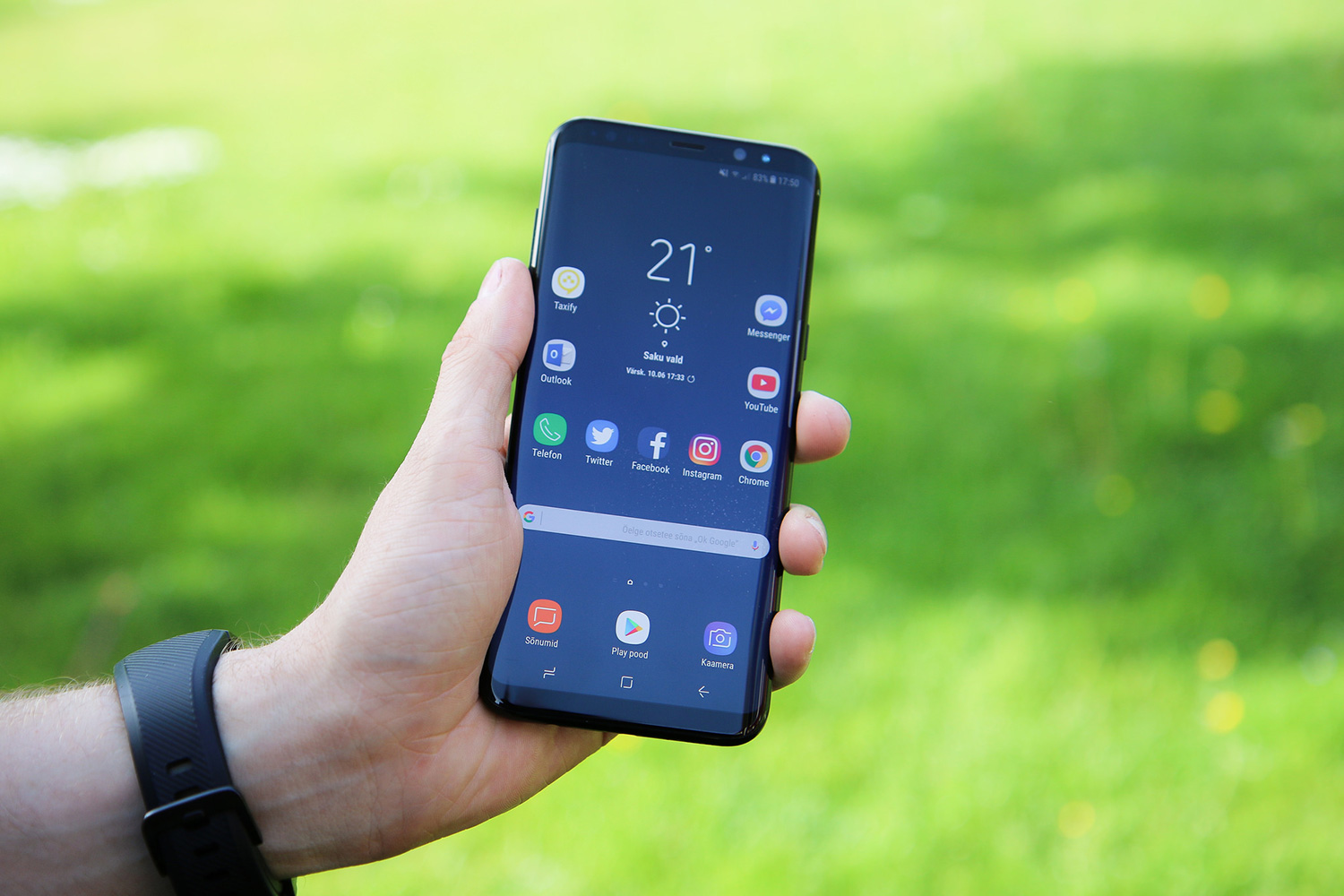
Apple is working to make the displays on the iPhone better, but that has largely manifested on the iPhone X rather than the iPhone 8 or 8 Plus. As such, the iPhone 8 offers an LCD display with 1,334 × 750-pixel resolution, which doesn’t come close to the 2,960 x 1,440-pixel Super AMOLED display on the Samsung
Design preferences are largely subjective, but there are still some important differences to note. For starters, the design of the Samsung
Apple has seriously stepped up the durability of its phones in recent times, but the iPhone 8’s IP67 rating still doesn’t beat out the
The
Winner: Samsung
Battery life and charging
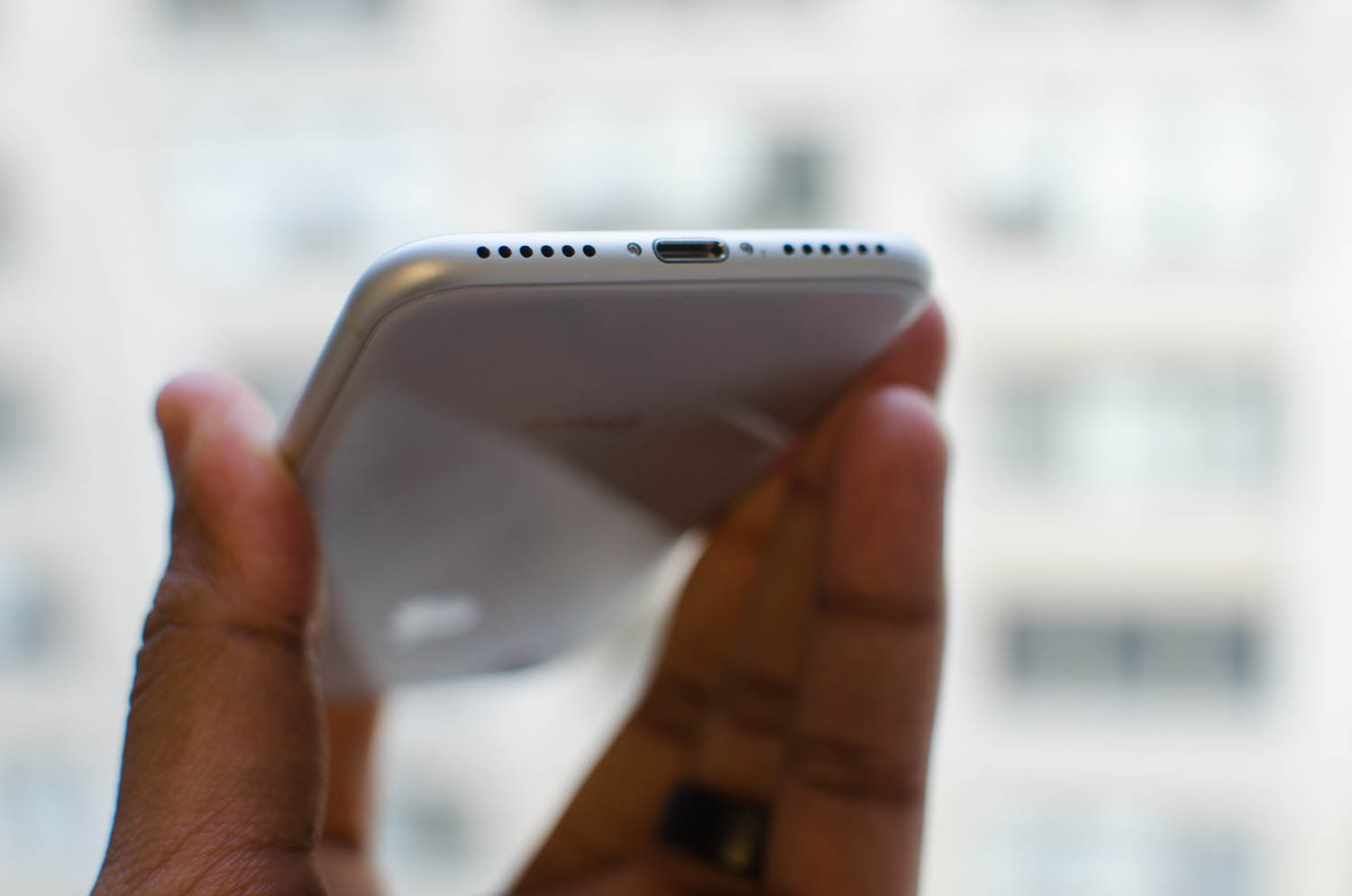
The iPhone has long had issues with battery life, and it looks like that’s not going to change with the iPhone 8, which has a battery capacity of just 1,821mAh. This doesn’t come close to matching the 3,000mAh battery on the S8. Still, it’s important to note the difference between battery capacity and battery life — one denotes how much power a battery can hold, while the other denotes how long a battery will last. While the iPhone will offer 14 hours of talk time on a full charge, the
Both phones offer quick charging, but the iPhone doesn’t come with the chargers necessary to take advantage of it, so that’s another point for Samsung. Both devices also support wireless charging.
Winner: Samsung
Cameras
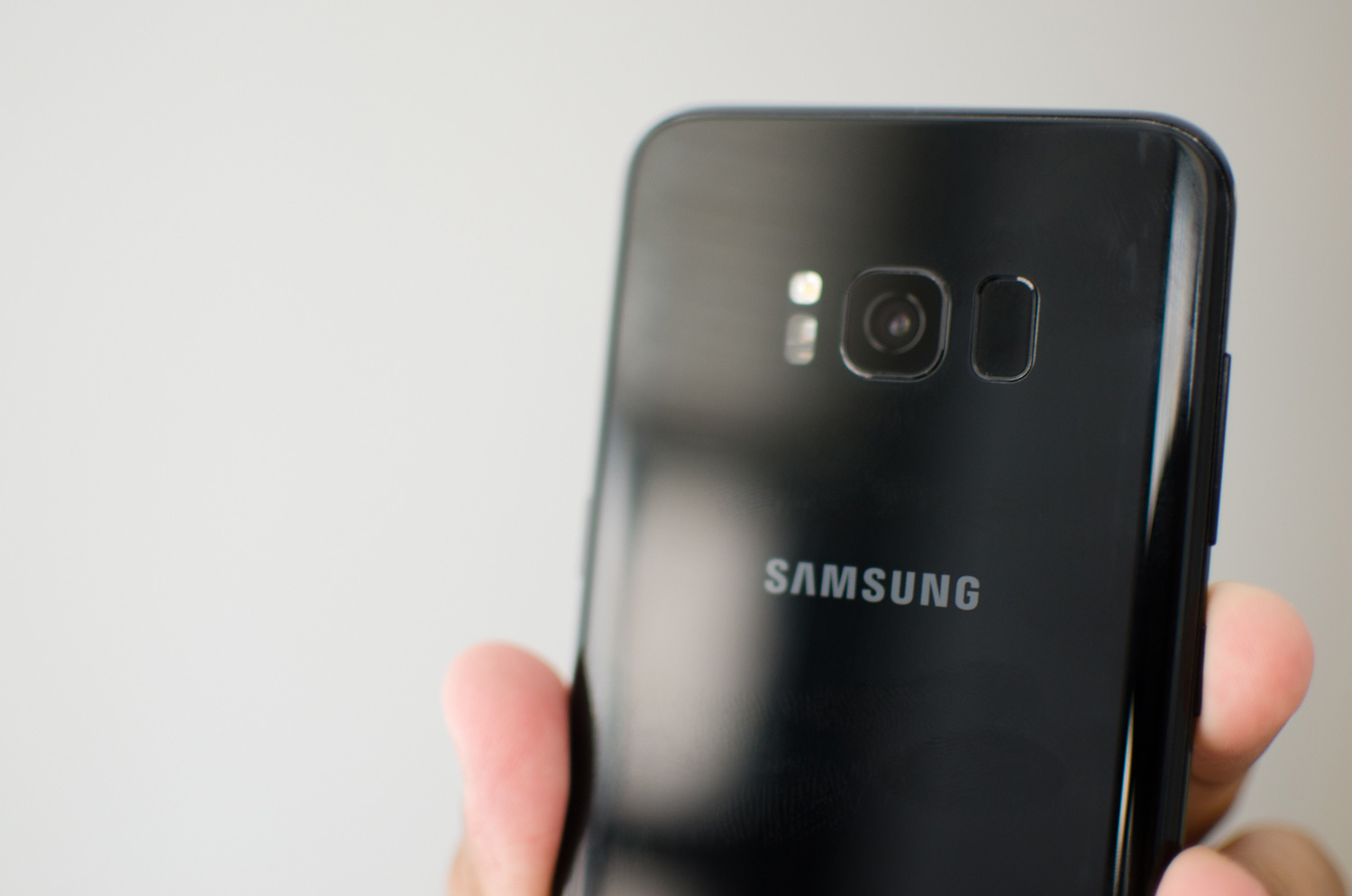
While Apple has long offered one of the best cameras on the market in the iPhone, other manufacturers have been stepping up their game in the camera department. The iPhone 8 boasts an excellent camera, which offers a 12-megapixel sensor with an f/1.8 aperture and optical image stabilization. The
Now, on paper the
Winner: Apple iPhone 8
Software

Software is probably the biggest difference between these two phones, and it’s a classic case of Android vs. iOS. We’re not going to award a winner here, but there are a few key differences we can note.
Generally speaking, iOS is considered to be easier to use and a little more intuitive than Android — but there’s a trade-off.
There are a few other differences here. For example, the iPhone will get updates as soon as they’re available, as Apple controls both the hardware and the software. The
Either way, both
Winner: Tie
Pricing and availability
Both the iPhone 8 and the Samsung
Both phones are available from all major carriers, as well as unlocked.
Winner: Apple iPhone 8
Overall winner: Apple iPhone 8
The Samsung
Still, both phones are excellent devices, so if you do end up deciding that the
Editors' Recommendations
- Are you having iPhone alarm problems? A fix is coming soon
- Best iPhone 14 deals: Unlocked and refurbished
- Best refurbished iPhone deals: Get an iPhone 14 for $513
- Best Samsung Galaxy S22 deals: Save big on unlocked models
- An Apple insider just revealed how iOS 18’s AI features will work

